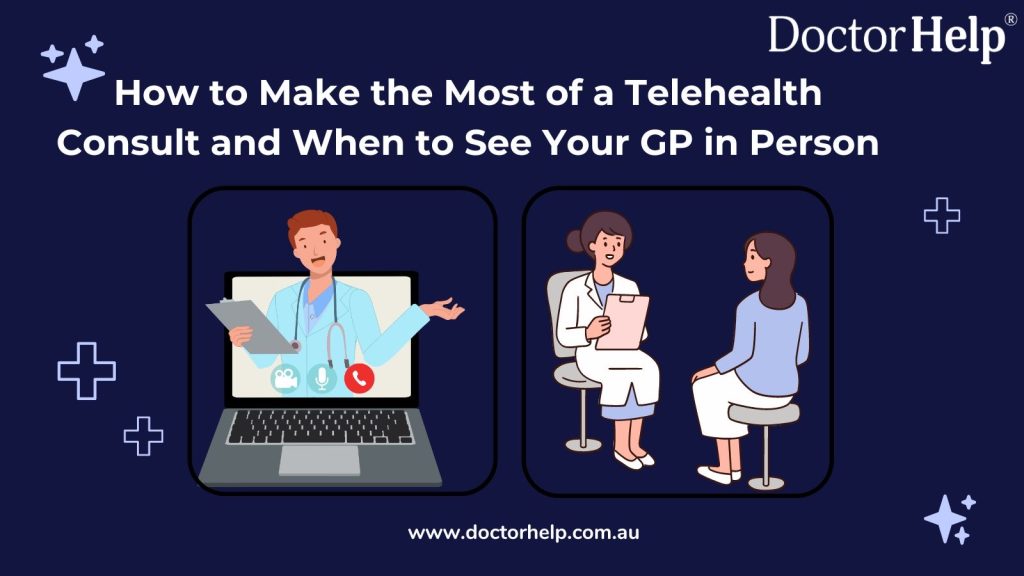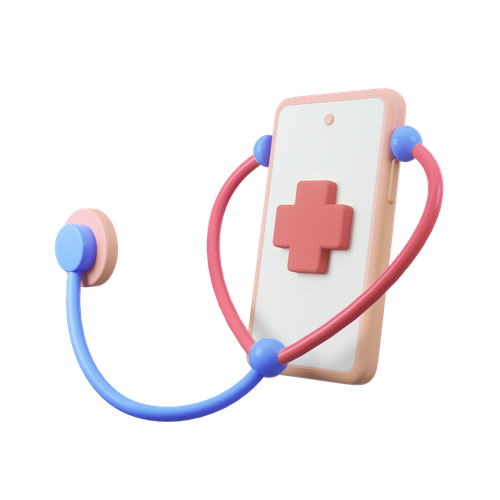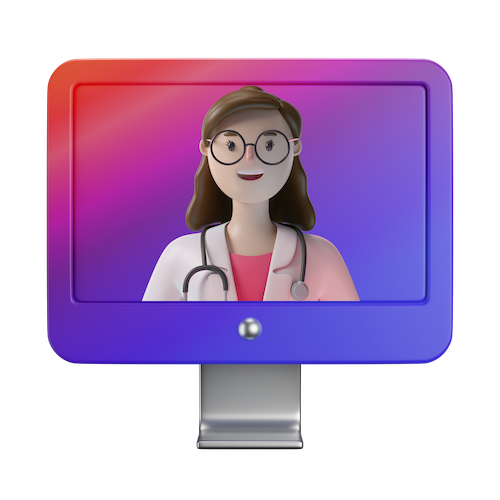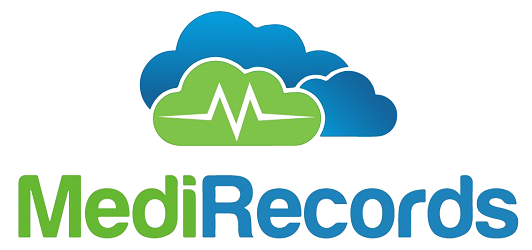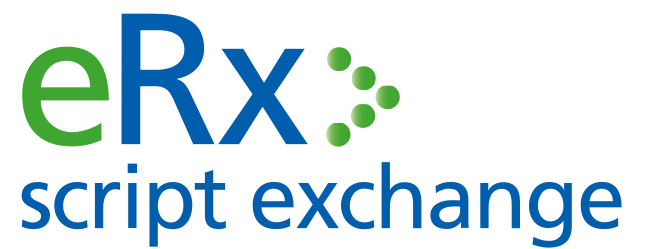In the modern era where technology is easily available, access to medical care has also been revolutionized and telehealth has become an integral part of health care. Individuals can easily get telehealth consults, online scripts, referrals and much more with just one click. Telehealth utilises virtual appointments with medical practitioners through video calls, phone calls, or messaging platforms.
This service offers many benefits, including accessibility, convenience, and efficiency. However, not all situations are suitable for getting telehealth consults. Some medical conditions require in-person consultations. The most important thing is to know when it is important to get the telehealth consultation and when is the time to visit the GP physically is essential for optimal healthcare management.
The Emergence of Telehealth in Australia
As per the Australian Communications and Media Authority report, almost all Australian individuals use internet connectivity for several work-related and lifestyle services. Since the COVID-19 outbreak in 2020, telehealth has become more in demand as it reduces the spread of unwanted viruses. This made people of all ages find telehealth a simple and much more efficient service.
Australian National Digital Health Strategy played an integral part in this shift of diverting many health services to telehealth consult making healthcare accessible and faster and much more dedicated to the patients.
Statistics from Australia’s National Digital Health Strategy show that one in every 20 Google searches in Australia is related to health, with 84% of users seeking health information online first. Additionally, 69% of older Australians use the Internet to access health information, highlighting the widespread integration of digital technology into everyday life.
A press release from the Department of Health and Aged Care in Australia reports that between March 13, 2020, and March 16, 2022, over 100 million telehealth services were delivered to approximately 17 million Australians nationwide.
Telehealth Consults vs. In-Person Appointments
.
Telehealth services focus on the accessibility and convenience of the individuals. Telehealth provides services without long waiting times or travel expenses. Although there are some restraints to telehealth services, online physicians can not examine the patient’s condition in detail.
Here is an overview based on comparing telehealth and in-person consultations.
Telehealth Consults:
⦁ Access: This service of online medical certificates, instant prescription refills and referrals makes it much easier for patients to save time and provides more access.
⦁ Convenient Service: Telehealth consultation is an online mode of communication with the medical health practitioner which provides access to the service from anywhere around the country with a stable internet connection. Easily apply for a medical health certificate or prescription refills as well.
⦁ No Time Limit: Telehealth consultation doesn’t operate as per the conventional clinic times; patients are free to book appointments any time of the day and the next available slot is given.
⦁ Round-the-clock Availability: There is no time limit for the appointments, so medical officers are available 24/7 with a minimum waiting time. So even after working hours, anyone can book a telehealth appointment.
⦁ Cost Efficient: Online consultations are affordable and much more convenient on the pocket. They are a much more cost-efficient solution for minor medical issues as they don’t require fuel or missed working hours.
⦁ Security of Data: With secure online portals like Doctor Help, the payments and data are secured and saved. This is to make the patients much more comfortable using telehealth consults.
⦁ Continuity of medical care:
With Telehealth consultation between patients gets firm support for the ongoing conversation and communication. This online consultation enables follow-up appointments, medication management through telehealth prescriptions, and monitoring of chronic conditions remotely.
One of the most prominent limitations of telehealth is the difficulty of conducting comprehensive physical examinations of patients. Blood tests, imaging studies or other diagnostic assessments require a professional medical environment and tools which are unfortunately not conducted online. Patients need to visit and get check-up’s done in the healthcare facility nearby for vaccinations, wound care, and medical administration even after having telehealth consults for other medical reasons. Also, telehealth requires stable connectivity and technological requirements, only those patients who have these facilities can access this service.
Face-to-Face Visits
.⦁ In-person Examination: Healthcare practitioners can easily observe the patients in person during the face to face visits. This is very important to keep observation for a better understanding of the patient’s medical health.
⦁ Personal Connection: When patients are taking telehealth consults, they are usually on the video call and the GP on the other side can’t resonate with their condition, but through the in-person visits and appointments, doctors get more involved and this builds a strong bond between the patient and their doctor.
⦁ Emergency Situation: Emergency care, such as urgent medical situations that require in-person visits for treatment, can’t be done sitting at home. For these situations, patients need to visit the GPs in person and get their treatment done as soon as possible.
⦁ Diagnosis and procedural care: During the telehealth consult patients are not able to bring their recent medical tests urgently, which is possible when you are in person present at the medical facility. Moreover, many conditions require diagnostic procedures and it’s better to visit in person.
When is the Right Time to Book a Telehealth Consultation Appointment?
For booking a telehealth appointment consider the following situation:
⦁ Routine Medical Advice: Telehealth consults are the best solution for saving your time and money when you are not suffering from any serious condition and only require services regarding minor ailments, ongoing prescriptions, and general health inquiries.
⦁ Appointment Follow up: Telehealth consultation serves the best for follow-up visits to get a review of the progress of the treatments. This way patients can communicate with the GPs and discuss the test results. Only if it’s required then GP will book an in-person appointment saving time on both ends.
⦁ Round-the-clock care: Through telehealth appointments getting consultations and having communication with the GPS after working hours is getting much more in common.
⦁ Non-Urgent Medical issues: All those non-emergency medical situations, that do not require immediate medical care, can be done via telehealth. This is the best way to treat mild infections or rashes that don’t require in-person appointments.
⦁ Doctors Certificates: If you are looking for medical certificates online then telehealth services and the platforms like Doctor Help are the best for the medical certificates required for leave from work or study and for insurance purposes.
⦁ Online prescriptions Refills: Patients can apply for an eScript. Or prescription refills (as per the guidance of the GP) through online medical services.
⦁ Preventive Healthcare: Telehealth consults are used for preventative health screening and counselling for a healthy lifestyle.
⦁ Easy Referral: Through Telehealth getting pathology referrals, radiology referrals, specialist referrals, Blood test referrals, X-rays, or MRI referrals is easy.
⦁ Accessibility Needs: For patients having mobility issues telehealth consultations offer convenience and accessibility. Also, it eradicated the transportation barriers for those residing in rural or remote areas, where in-person healthcare services may be limited.
When should one see a Doctor or GP physically?
There are various conditions in which in-person visits to the GP are preferred over telehealth consultations, including:
⦁ Physical check-ups: If the patient requires in-person examination then it the best to go in person to the GP. For example, for abdominal pain, chest pain palpation or some skin lesions, which require hands-on assessment patients are required to book a physical appointment
⦁ Diagnostics: Well for the tests and the screening which requires the lab or the clinical equipment, patients need to visit the medical facility. These treatments include blood tests, X-rays, ultrasounds, or biopsies. As these cannot be performed remotely patients visit a healthcare facility.
⦁ Emergency Medical Cares: If patients are going through medical emergencies, such as severe injuries, chest pain, breathing difficulties, sudden onset of severe pain, or symptoms of stroke, require immediate evaluation and treatment in person at an emergency department.
⦁ Medical Procedure: Many medical procedures such as vaccinations, wound care, suturing, injections or minor surgeries are done in the medical facility, thus requiring an in-person visit.
⦁ Complex Medical Concerns: Patients who either show complex symptoms or have difficult medical histories require immediate visits to the clinics for comprehensive evaluation and management.
⦁ Preventative Care: It is essential to get regular physical check-ups even in the absence of symptoms as part of preventive healthcare which is not fully achievable via telehealth.
⦁ Prenatal Care: Pregnant ladies require regular and as-per-prescribed prenatal check-ups and obstetric care, which includes physical examinations, foetal monitoring, and ultrasound scans.
Conclusions:
Telehealth consults and online appointments may offer convenience and accessibility, but these are never the only medical solutions in many situations.
Rather both conventional and the online medical realm hold their significance. It’s important not to compare both and they are designed for the better care of the individuals and for providing more intensive care with convenience.

